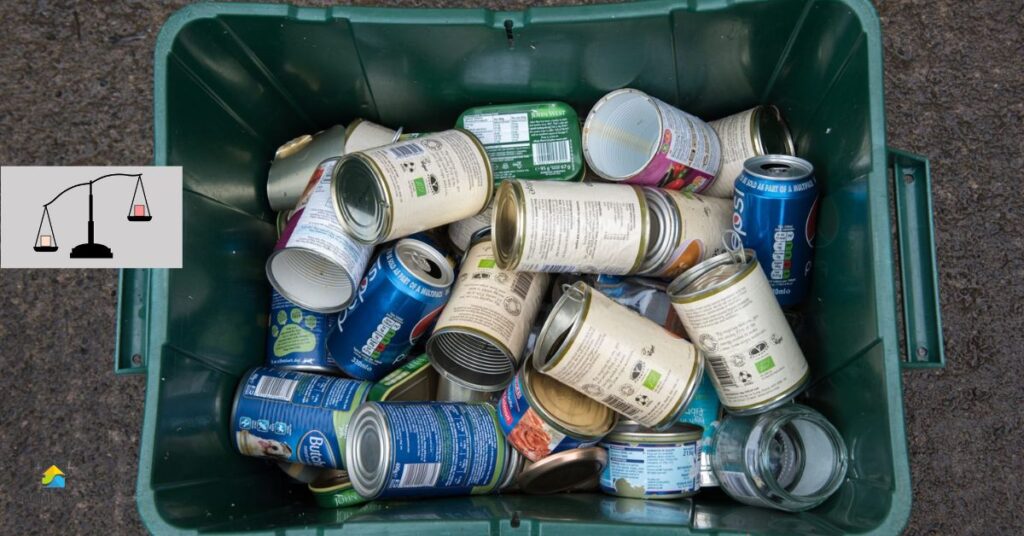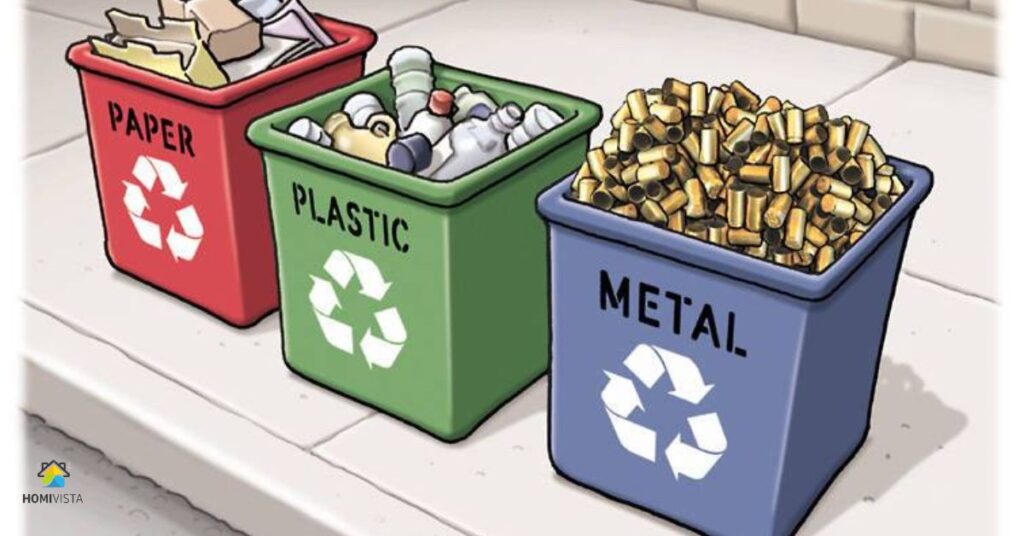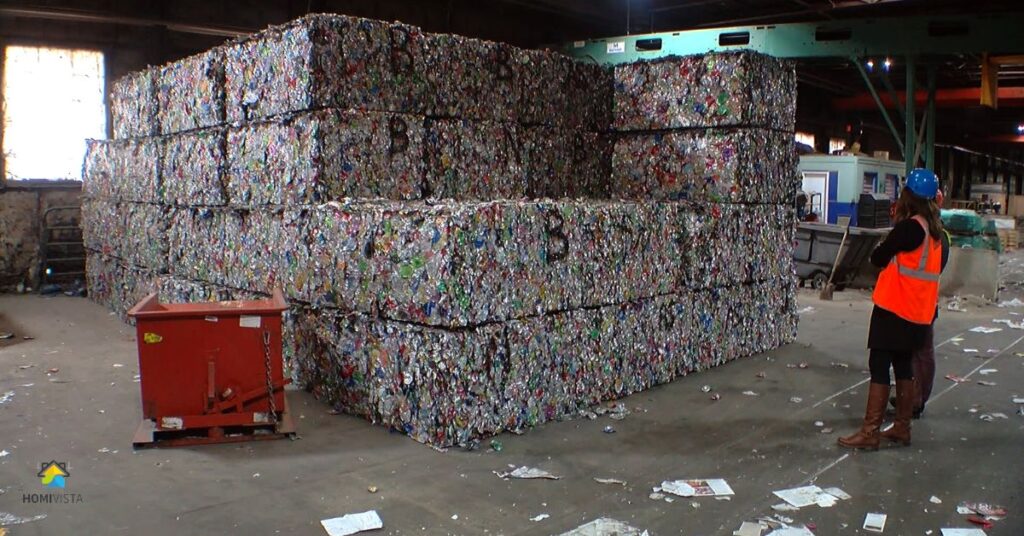You ever wondered about the value of that garbage bag full of aluminium cans held in your garage. We delve into the world of recycling and calculate just how much a garbage bag full of cans could be worth.
The process of collecting aluminum cans to calculating their market value. Let’s uncover the hidden potential of what many consider mere trash. “Trash Rite” takes us on a journey to discover the economic and environmental value of recycling aluminum cans.
Our aim is to provide insights into the actual worth of a seemingly ordinary bag of cans by examining the factors. These factors are market prices, weight estimation and recycling center policies. We unravel the mystery behind the value of recycling and its impact on our world.
Factors Affecting the Value of a Garbage Bag Full of Cans
The following factors affect the value of garbage bags.
Aluminum Can Prices
Aluminum can prices fluctuate based on market demand and recycling rates. Prices per pound can vary depending on local recycling centers and scrap metal dealers. Environmental initiatives and global economic trends also impact aluminum can prices. It’s important to stay informed about current prices before recycling aluminum cans for maximum value.
Read this blog: What Is A Normal Kitchen Trash Can Size? – Trash Rite
Weight of the Cans
The weight of aluminum cans is depending on their size and material thickness. On average, an empty aluminum can weight around 14 to 16 grams. A full can, containing beverages like soda or beer, can weigh approximately 350 to 380 grams.

It’s crucial to consider the weight of the cans when estimating their value by weight. Recycling centers often use weight as a primary factor in determining payment for recycled cans. Properly weighing the cans ensures accurate compensation and contributes to efficient recycling practices.
Condition of the Cans
The condition of aluminum cans greatly impacts their value for recycling. Cans in good condition, without dents or damage are preferred by recycling centers. Crushed or flattened cans may fetch a lower price due to reduced material volume.

Clean cans free of contaminants like food residue or other materials are more valuable. Sorting cans by condition helps maximize their recycling value and supports efficient processing. Maintaining the condition of cans ensures optimal returns and contributes to sustainable recycling practices.
Also read this blog: Joel Osteen’s House In Houston, Texas (TX)
Location
The condition of aluminum cans is based on their location. Cans stored indoors or in dry environments are usually in better condition than those left outdoors. Extreme temperatures and exposure to moisture can affect the condition of cans negatively. Proper storage in cool, dry areas can help preserve the condition of the cans and maintain their recycling value.
Recycling Center Policies
Recycling center policies dictate how aluminum cans are processed and valued. These policies may vary among different centers. Some centers may offer higher prices for sorted and clean cans, while others accept cans regardless of condition.
Payment methods such as cash or vouchers, also depend on center policies. These policies help recyclers maximize their earnings and comply with center regulations. Checking with local recycling centers ensures adherence to their specific policies and promotes effective recycling practices.
Frequently Asked Questions
How much are aluminum cans worth?
Prices vary, but they typically range from $0.25 to $0.40 per pound.
Can crushed cans be recycled?
Yes, crushed cans still be recycled, but they may fetch a slightly lower price due to reduced volume.
Do recycling centers pay for damaged cans?
Yes, but damaged cans usually fetch a lower price compared to cans in good condition.
Do all recycling centers accept aluminum cans?
Most recycling centers accept aluminum cans, but it’s advisable to check with your local center.
Can aluminum cans be recycled indefinitely?
Yes, aluminum cans can be recycled repeatedly without losing their quality.
What should I do with non-aluminum cans?
Non-aluminum cans, such as steel cans, should be sorted separately and recycled accordingly.
Are there any benefits to recycling aluminum cans?
Yes, recycling aluminum cans conserves energy, reduces waste and helps protect the environment.
Can I recycle aluminum foil along with cans?
No, aluminum foil and cans are typically recycled separately due to differences in composition.
Can I recycle aluminum cans with labels and lids on?
Yes, most recycling centers accept cans with labels and lids, but it’s best to check with your local center.
Is it worth collecting aluminum cans for recycling?
Yes, collecting aluminum cans for recycling can be profitable and helps promote sustainability.
What are some common uses of recycled aluminum?
Recycled aluminum is used to make new cans, automotive parts and various consumer products.
Can I recycle aluminum cans with paint or other coatings?
It’s best to remove any paint or coatings from aluminum cans before recycling them.
Do I need to crush aluminum cans before recycling?
Crushing cans is optional, but it may help save space and make transportation easier.
How can I find a recycling center near me?
You can use online directories or contact your local waste management department for information.
Are there any restrictions on the quantity of cans I can recycle?
Some recycling centers may impose limits on the number of cans you can recycle at once.
Can I recycle aluminum cans with plastic or glass bottles?
It’s best to separate aluminum cans from other materials before recycling to ensure proper processing.
Do aluminum can prices fluctuate over time?
Yes, aluminum can prices can vary based on market demand, economic conditions, and recycling rates.
Are there any environmental benefits to recycling aluminum cans?
Yes, recycling aluminum cans reduces greenhouse gas emissions, conserves natural resources, and helps combat climate change.
Conclusion
The value of a garbage bag full of aluminum cans can vary based on factors such as weight, condition and market prices. Recycling centers play a crucial role in accepting and processing these cans, contributing to environmental sustainability. It’s important to separate aluminum cans from other materials and follow recycling guidelines for optimal results.
Collecting and recycling aluminum cans not only helps earn some extra cash but also promotes responsible waste management. The recycling process conserves energy and resources, making it a win-win for both individuals and the environment. Overall, understanding the factors affecting aluminum can value and actively participating in recycling efforts can have positive impacts on communities and ecosystems.

Meet Harry, our seasoned home decor specialist with three years of hands-on experience. His passion lies in crafting inviting spaces that reflect your style. From cozy corners to vibrant living rooms. Harry’s keen eye for design ensures every detail enhances the overall aesthetic. Trust him to turn your home into a personalized haven, blending functionality with flair.







